Lead Procrastination

What are the consequences of chronic procrastination ?
Procrastination is a common behavioral pattern where individuals delay or put off tasks until the last minute. While occasional procrastination may not cause significant harm, chronic procrastination can lead to various negative consequences. In this article, we will discuss the potential effects of persistent procrastination on an individual's life. Chronic procrastination often results in increased stress levels due to the accumulation of unfinished tasks and deadline pressures. Procrastination leads to poor time management skills, as individuals tend to underestimate the time required to complete tasks. Chronic procrastination can also have a negative impact on an individual's self-efficacy, or their belief in their ability to succeed. Procrastination can strain personal relationships, both professionally and personally. Colleagues and friends may become frustrated with the individual's lack of commitment and follow-through, leading to conflicts and misunderstandings. In academic settings, chronic procrastination can lead to poor grades and missed opportunities for learning. Similarly, in professional environments, consistent procrastination can hinder career advancement and limit job opportunities. Chronic stress from procrastination can take a toll on an individual's physical health. The constant pressure and anxiety associated with procrastination can contribute to issues such as headaches, digestive problems, and weakened immune function.
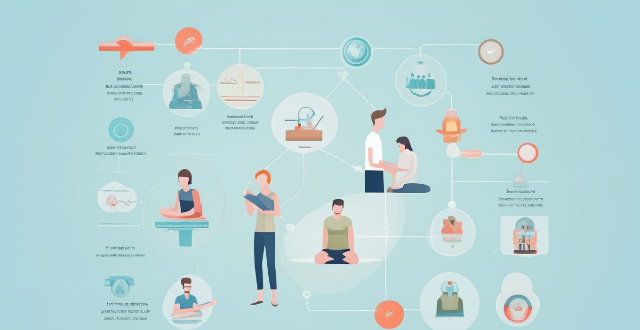
Is there a connection between procrastination and mental health ?
Procrastination is a common behavior that can have negative consequences on mental health, including increased stress and anxiety, depression, low self-esteem, and poor time management skills. To overcome procrastination, one can set realistic goals, create a schedule, eliminate distractions, use timers, reward themselves, seek support, practice mindfulness, and be kind to themselves.
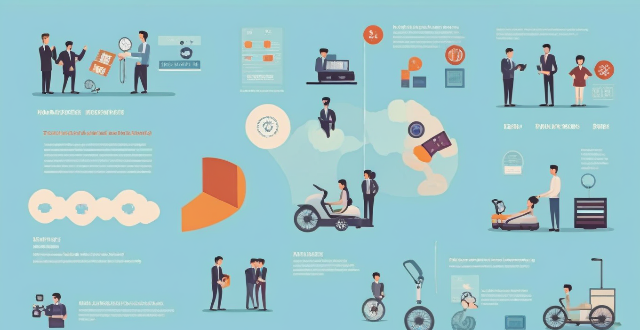
How does procrastination affect productivity and what can be done to avoid it ?
Procrastination negatively impacts productivity by leading to decreased efficiency, increased stress levels, poor quality work, and missed opportunities. To combat procrastination, individuals should set clear goals, prioritize tasks, break down larger tasks into smaller chunks, eliminate distractions, use time management techniques, and hold themselves accountable. Implementing these strategies can help improve productivity and achieve long-term success.
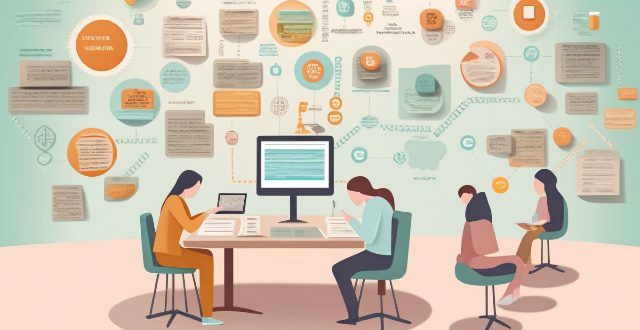
How can I avoid procrastination and stay motivated to learn ?
Procrastination is a common problem that affects many people, especially when it comes to learning. To avoid procrastination and stay motivated to learn, set clear goals, create a study schedule, eliminate distractions, use rewards and incentives, find a study group or partner, and practice self-care.

How can I overcome procrastination ?
Procrastination, or the act of delaying or postponing tasks, is a common issue that affects many people. It can be challenging to overcome, but with some strategies and techniques, it's possible to break free from this habit and become more productive. Here are some tips on how to overcome procrastination: 1. Identify the Root Cause: The first step in overcoming procrastination is to identify its root cause. Ask yourself why you are procrastinating. Is it because the task is boring, difficult, or uninteresting? Or is it because you lack motivation or feel overwhelmed by the task? Once you have identified the reason, you can take steps to address it. 2. Set Clear Goals: Setting clear goals is essential for overcoming procrastination. When you have a specific goal in mind, it becomes easier to focus your efforts and avoid distractions. Make sure your goals are realistic, measurable, and time-bound so that you can track your progress and stay motivated. 3. Break Tasks into Smaller Chunks: Breaking tasks into smaller chunks makes them more manageable and less daunting. Instead of trying to tackle a large project all at once, divide it into smaller tasks that you can complete one at a time. This will help you feel more accomplished and motivated as you make progress towards your goal. 4. Use Time Management Techniques: Effective time management is crucial for overcoming procrastination. Use techniques such as the Pomodoro Method, where you work for 25 minutes and then take a five-minute break, or the Eisenhower Matrix, which helps you prioritize tasks based on their urgency and importance. These techniques can help you stay focused and avoid distractions while working on tasks. 5. Eliminate Distractions: Distractions are one of the biggest obstacles to productivity. To overcome procrastination, eliminate as many distractions as possible while working on tasks. Turn off your phone, close unnecessary tabs on your computer, and find a quiet place to work where you won't be interrupted. 6. Reward Yourself: Finally, reward yourself for completing tasks or reaching milestones. This will help you stay motivated and maintain your focus on your goals. Choose rewards that are meaningful to you, whether it's taking a break to read a book or treating yourself to a favorite snack. In conclusion, overcoming procrastination requires identifying its root cause, setting clear goals, breaking tasks into smaller chunks, using time management techniques, eliminating distractions, and rewarding yourself for progress made. By implementing these strategies, you can become more productive and achieve your goals without the hindrance of procrastination.

How can I overcome procrastination and stay motivated to study ?
Procrastination is a common problem that affects many students. It can be challenging to stay motivated and focused on your studies, especially when there are so many distractions around you. However, there are several strategies you can use to overcome procrastination and stay motivated to study. Here are some tips: - Set clear goals for yourself. Make sure your goals are specific, measurable, achievable, relevant, and time-bound (SMART). For example, instead of saying "I want to do well in my math class," say "I want to score at least 90% on my next math test." Having a clear goal will help you stay focused and motivated. - Break tasks into smaller, more manageable chunks. Large tasks can be overwhelming and lead to procrastination. To avoid this, break your tasks into smaller, more manageable chunks. For example, if you have a research paper to write, break it down into smaller tasks such as selecting a topic, conducting research, creating an outline, writing the introduction, etc. Completing each small task will give you a sense of accomplishment and keep you motivated. - Create a study schedule. Creating a study schedule can help you stay organized and on track. Allocate specific times for studying, breaks, and other activities. Stick to your schedule as much as possible, but also be flexible enough to adjust it if necessary. Having a plan will help you avoid wasting time and reduce the likelihood of procrastination. - Eliminate distractions. Distractions can easily lead to procrastination. To avoid this, eliminate distractions such as social media, television, or video games during your study time. Find a quiet place where you can focus without interruptions. Turn off your phone or put it on silent mode to avoid distractions from notifications. - Use time management techniques. Using time management techniques such as the Pomodoro technique or the Eisenhower matrix can help you stay focused and productive. The Pomodoro technique involves working for 25 minutes and then taking a five-minute break. The Eisenhower matrix helps you prioritize tasks based on their urgency and importance. These techniques can help you manage your time effectively and reduce procrastination. - Reward yourself. Rewarding yourself after completing a task can help you stay motivated. Set up rewards for yourself after completing each task or reaching a milestone. For example, you could treat yourself to a favorite snack or watch an episode of your favorite TV show after finishing a study session. This will give you something to look forward to and keep you motivated. - Seek support. Finally, seek support from friends, family, or teachers if you're struggling with procrastination. They can offer encouragement, advice, or accountability to help you stay on track. Joining a study group or finding a study partner can also provide motivation and support. In conclusion, overcoming procrastination requires discipline, planning, and self-motivation. By setting clear goals, breaking tasks into smaller chunks, creating a study schedule, eliminating distractions, using time management techniques, rewarding yourself, and seeking support, you can stay motivated and focused on your studies.

What are some effective strategies for beating procrastination ?
Strategies for Beating Procrastination include setting clear goals, breaking tasks into smaller chunks, using time management tools, eliminating distractions, rewarding oneself, getting an accountability partner, and practicing mindfulness. These strategies can help individuals overcome procrastination and increase productivity by focusing on specific tasks, prioritizing activities, avoiding interruptions, staying motivated, holding oneself accountable, and becoming more aware of their thoughts and feelings.

How can I identify the root cause of my procrastination and address it effectively ?
This guide provides a comprehensive understanding of procrastination, its common causes, and strategies to address it. It emphasizes the importance of identifying personal root causes such as fear of failure, perfectionism, lack of motivation, distraction, and poor time management. The guide offers targeted strategies for each cause, including breaking tasks into smaller steps, setting realistic standards, finding purpose, minimizing distractions, and using time management tools. It concludes by encouraging patience, self-awareness, and consistent effort in overcoming procrastination.

Are there any books or resources that can help me overcome procrastination ?
This article explores some books and resources that can help you overcome procrastination. The first book, "The Procrastination Equation" by Piers Steel, provides a comprehensive understanding of procrastination and offers practical tips and strategies to overcome it. The second book, "Eat That Frog!" by Brian Tracy, offers 21 practical strategies for overcoming procrastination and getting more done in less time. The third book, "The Now Habit" by Neil Fiore, offers a unique approach to overcoming procrastination by focusing on the present moment and enjoying guilt-free play. The fourth book, "The War of Art" by Steven Pressfield, offers a powerful perspective on procrastination as an inner creative battle that needs to be won. By implementing these strategies and techniques, you can break free from the cycle of procrastination and start getting things done.

How can I break the cycle of procrastination and start being more productive ?
Procrastination is a common problem that affects many people. It's a habit that can be difficult to break, but with the right strategies, it's definitely possible to increase productivity and get more done. Here are some tips to help you break the cycle of procrastination: 1. Set clear goals for yourself. Write down exactly what you want to achieve and by when. This will give you a sense of direction and make it easier to focus on the task at hand. 2. Prioritize tasks based on their importance and urgency. Start with the most important tasks first and work your way down the list. This will help you stay motivated and focused, as you'll see progress being made. 3. Use time management techniques such as the Pomodoro technique or time blocking to stay on track and avoid distractions. These techniques involve breaking down your work into smaller, manageable chunks and taking regular breaks to recharge. 4. Eliminate distractions by turning off notifications on your phone and computer, finding a quiet place to work, and letting others know that you need some uninterrupted time to focus on your tasks. 5. Hold yourself accountable by finding someone who can hold you accountable for your progress, such as a friend, family member, or colleague. Check in with them regularly to report on your progress and ask for support if needed. 6. Reward yourself for completing tasks. This could be something small like taking a break to read a book or watch an episode of your favorite TV show. Rewards can help motivate you to keep going and make the process of breaking the cycle of procrastination more enjoyable.

Why do people procrastinate and how can they stop ?
Procrastination is a common behavior influenced by factors like lack of motivation, fear of failure or success, difficulty with self-regulation, and environmental distractions. To overcome procrastination, individuals can set clear goals, improve time management, boost motivation, address emotional barriers, and develop self-regulation skills. Consistent implementation of these strategies can lead to increased productivity and reduced procrastination over time.

How can I stick to my study schedule without getting distracted ?
Sticking to a study schedule without getting distracted requires discipline, motivation, and the right strategies. Here's how you can stay on track with your studies: 1. Setting clear goals: Define objectives and break them down into smaller parts to make progress without feeling overwhelmed. 2. Creating a conducive environment: Minimize distractions by finding a quiet space, turning off notifications, and organizing your study area. 3. Utilizing time management techniques: Use a planner to allocate specific time slots for studying and implement the Pomodoro Technique to maintain concentration and prevent burnout. 4. Staying motivated: Give yourself small rewards after completing study sessions or achieving milestones, and visualize success to provide the necessary push to continue. 5. Taking care of yourself: Incorporate regular exercise and ensure adequate sleep to improve mental clarity and concentration. 6. Eliminating procrastination: Tackle procrastination by addressing its root cause and starting with the hardest task to reduce the likelihood of procrastination. By consistently applying these strategies, you can enhance your focus and efficiency in your academic pursuits. Remember, consistency is key, so persevere and stay committed to your study schedule for the best results.

How can I overcome procrastination and lack of motivation when it comes to studying ?
Overcoming procrastination and lack of motivation in studying requires discipline, planning, and self-awareness. By setting clear goals, creating a study plan, eliminating distractions, taking breaks, and rewarding yourself, you can improve your productivity and focus while studying. Remember to be patient with yourself and celebrate small successes along the way. With consistent effort and dedication, you can overcome these challenges and achieve your academic goals.

How long does a lead-acid battery last ?
Lead-acid batteries are commonly used in various applications, including vehicles, uninterruptible power supplies (UPS), and renewable energy storage systems. The lifespan of a lead-acid battery depends on several factors, such as its type, usage, and maintenance. In this article, we will discuss the typical lifespan of lead-acid batteries and provide tips for extending their service life.

How does a lead-acid battery work ?
Lead-acid batteries work on the principle of converting chemical energy into electrical energy and vice versa. They consist of an electrolyte, plates, and separators. During charging, an external power source applies a voltage higher than the open-circuit voltage of the battery, causing lead sulfate on the positive plate to be converted back into lead dioxide and on the negative plate into metallic lead. During discharging, when a load is connected to the battery, lead dioxide on the positive plate is reduced to lead sulfate, and metallic lead on the negative plate is oxidized to lead sulfate. The electrons flow from the negative terminal of the battery to the load during discharging and from the positive terminal of the external power source to the positive plate of the battery during charging.
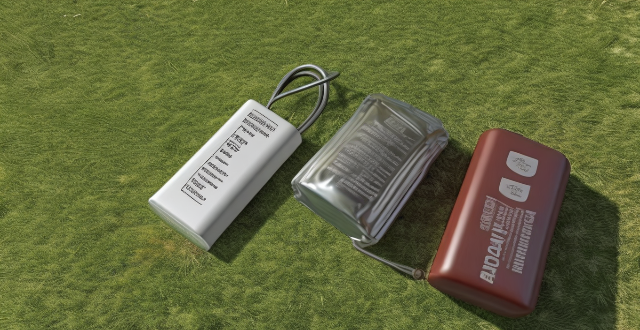
Can you recharge a dead lead-acid battery ?
Recharging a dead lead-acid battery is possible, but it depends on the condition of the battery and how long it has been discharged. Here are some steps to follow when attempting to recharge a dead lead-acid battery: Check the battery's condition, determine the battery's voltage, choose the right charger, connect the charger to the battery, monitor the charging process, and test the battery after charging. In summary, recharging a dead lead-acid battery is possible as long as the battery is in good condition and the correct charging procedures are followed.

What is the difference between a sealed and unsealed lead-acid battery ?
Sealed lead-acid batteries are maintenance-free and have a longer lifespan than unsealed batteries. They also have a lower self-discharge rate and no risk of acid spillage. Unsealed lead-acid batteries require regular maintenance, including checking the electrolyte level and adding distilled water when necessary. They generally have a shorter lifespan and a higher self-discharge rate compared to sealed batteries. There is also a risk of acid spillage if the battery is damaged or mishandled.

Can cultural fusion lead to a loss of cultural identity ?
Cultural fusion, the blending of different cultures, has been a phenomenon for centuries. However, with globalization and the rise of social media, cultural fusion has become more prevalent than ever before. While it can lead to the creation of new and exciting cultural expressions, it can also raise concerns about the potential loss of cultural identity. This article explores whether cultural fusion can indeed lead to a loss of cultural identity by examining the benefits of cultural fusion, the potential loss of cultural identity, and ways to maintain cultural identity amidst fusion.

How can you maintain a lead-acid battery to extend its lifespan ?
Lead-acid batteries are commonly used in vehicles, UPS, and solar storage systems. To ensure their longevity, it's essential to maintain them properly. Here's how you can extend the lifespan of your lead-acid battery: prevent overcharging, avoid deep discharges, maintain proper fluid levels, keep the battery clean, and store properly when not in use. By following these maintenance tips, you can significantly extend the lifespan of your lead-acid battery and ensure reliable performance for years to come.

What are the safety precautions to take when handling lead-acid batteries ?
When dealing with lead-acid batteries, it's crucial to follow certain safety precautions to protect yourself and your surroundings. Here are some essential guidelines: ### Personal Protective Equipment (PPE) - Always wear goggles to protect your eyes from acid splashes or lead particles. - Use acid-resistant gloves to prevent skin contact with battery acid. - Wear long sleeves and an acid-resistant apron to protect your clothing and skin. - Consider using a face shield if working in an environment where battery explosion is possible. ### Ventilation - Ensure proper ventilation when charging, testing, or working near lead-acid batteries. - Avoid breathing in the fumes released by the batteries. ### Handling - Lift batteries carefully to avoid straining your back or dropping them. - Keep batteries upright to prevent acid leakage. - Do not place metal objects across the terminals to avoid short circuiting. ### Charging - Charge batteries in a well-ventilated area away from flames or sparks. - Use a dedicated charger suitable for the specific type of lead-acid battery you are charging. - Never overcharge the battery as it can cause damage or even explosion. ### Storage - Store batteries in a cool, dry place away from direct sunlight. - Keep them on a non-conductive surface to prevent short circuits. - Ensure that the storage area is well-ventilated. ### Disposal - Do not dispose of lead-acid batteries in regular trash. - Take them to a certified recycling center or a facility that accepts hazardous waste. - Clean up any spilled acid immediately with a solution of baking soda and water, then dispose of the cleaning materials properly. ### First Aid - If acid comes into contact with your skin, wash immediately with plenty of water and seek medical attention if necessary. - In case of eye contact, flush your eyes with water for at least 15 minutes and get immediate medical help. ### Training - Make sure you are trained in the correct procedures for handling lead-acid batteries. - Stay informed about the latest safety practices and equipment.

How often should you replace a lead-acid battery in a car ?
Replacing the lead-acid battery in your car is crucial for maintaining its performance and reliability. The lifespan of a lead-acid battery can vary depending on various factors, such as usage, maintenance, and environmental conditions. In this article, we discussed how often you should replace a lead-acid battery in a car. Before diving into the replacement frequency, it's essential to understand the factors that can affect the lifespan of a lead-acid battery. These factors include usage, maintenance, environmental conditions, and manufacturer. Frequent short trips, neglecting regular maintenance, extreme temperatures, and differences in materials and construction can all impact the battery's lifespan. For vehicles that are used regularly, it is generally recommended to replace the lead-acid battery every 3-5 years. However, this can vary based on the factors mentioned above. If you take good care of your battery and maintain it properly, it may last longer than 5 years. On the other hand, if you frequently expose your battery to harsh conditions or neglect its maintenance, it may need replacement sooner. If your vehicle is used infrequently, the lead-acid battery may not get enough time to recharge fully between uses. In such cases, it is advisable to replace the battery every 2-4 years to ensure reliable starting and avoid being stranded with a dead battery. Regardless of the age or usage of your battery, there are certain signs that indicate it may be time for a replacement. These signs include slow starting, dim headlights, corrosion, and age. It is generally recommended to have your battery tested by a professional if it is more than 5 years old to determine its remaining lifespan. In conclusion, replacing the lead-acid battery in your car is an inevitable part of vehicle ownership. The frequency at which you should replace it depends on various factors, including usage, maintenance, environmental conditions, and manufacturer. As a general guideline, replacing the battery every 3-5 years for regular use and every 2-4 years for infrequent use is recommended. However, always keep an eye out for signs of battery failure and consult with a professional if you are unsure about the health of your battery.
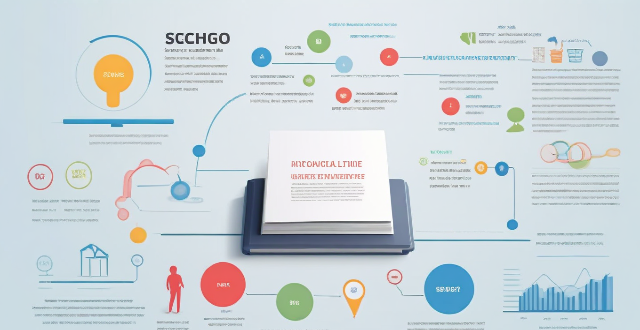
What role does self-discipline play in following a study plan ?
Self-discipline is crucial in following a study plan effectively. It involves setting goals, prioritizing tasks, maintaining focus on objectives, and avoiding distractions. By breaking down long-term goals into smaller, manageable tasks and allocating time wisely, self-disciplined individuals can maximize productivity and achieve academic success efficiently. Consistency, overcoming procrastination, and staying motivated are also key factors in sticking to a study plan. Developing strong self-discipline skills can help students reach their full potential.

How can I stay motivated and avoid procrastinating on important tasks ?
Strategies to overcome procrastination include setting clear goals, creating a schedule or to-do list, eliminating distractions, and staying accountable. Breaking down goals into smaller tasks can also help in maintaining motivation.
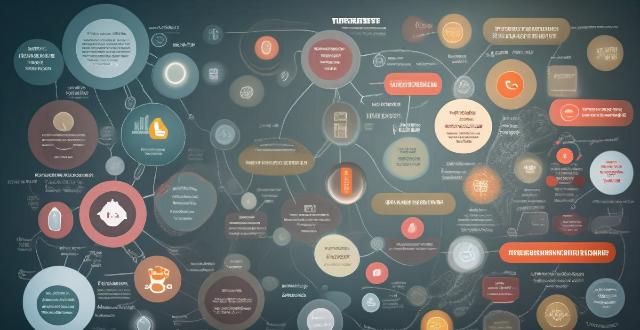
What are some common mistakes people make in time management ?
Effective time management is crucial for productivity, yetEffective time management is crucial for productivity, yet leading to stress and ineff underestimating task time, multitasking, poor planning, not saying 'no', failing to take breaks, perfectionism, disorganization, and ignoring tools and techniques designed to improve time management. Recognizing these mistakes can help individuals improve their time management skills, leading to increased productivity, reduced stress, and better overall well-being.
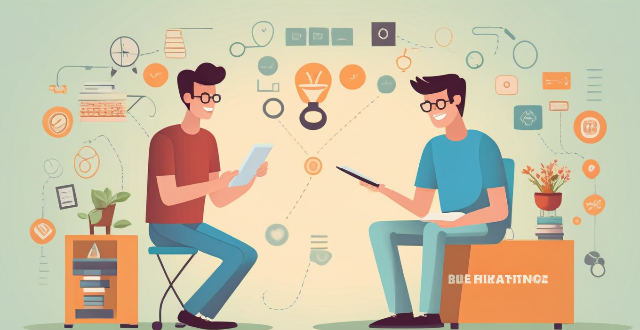
What are some effective methods for reviewing and retaining information before an exam ?
Preparing for an exam can be a daunting task, but with the right strategies and techniques, it is possible to effectively review and retain information before the exam. Some effective methods for reviewing and retaining information before an exam include creating a study plan, using active learning techniques, practicing retrieval and recall, and staying motivated and avoiding procrastination. By following these methods, students can improve their chances of success on their exams.

Can excessive exercise lead to sleep disorders ?
Overtraining can cause sleep disorders by disrupting normal sleep patterns and causing physical stress and fatigue. Relaxation techniques such as meditation, yoga, or deep breathing exercises can help calm your mind and body before bed. Adjusting your exercise routine and creating a consistent sleep schedule can also improve sleep quality. If you continue to experience sleep disturbances, consult with a healthcare professional for further evaluation and treatment.

Can poor personal hygiene lead to skin problems ?
Poor personal hygiene can lead to a variety of skin problems, including bacterial and fungal infections, irritation and inflammation, and other conditions. To prevent these issues, it's important to practice good hygiene, such as regular showering, wearing clean clothes, hand washing, moisturizing, and sun protection.

What role does preparation play in managing exam-related stress ?
Exam-related stress is a common experience for many students, and it can have a significant impact on their performance. However, preparation is one of the most effective ways to manage this stress. In this article, we will explore the role that preparation plays in managing exam-related stress. Preparation is crucial when it comes to managing exam-related stress. It reduces anxiety, increases efficiency, improves performance, and builds resilience. To prepare for exams, start early, create a study plan, review notes and textbooks, practice with past papers, seek help if needed, take care of yourself, stay positive, visualize success, avoid procrastination, and use relaxation techniques. By following these strategies, you can prepare yourself effectively for exams and manage any related stress. Remember, preparation is key to success!
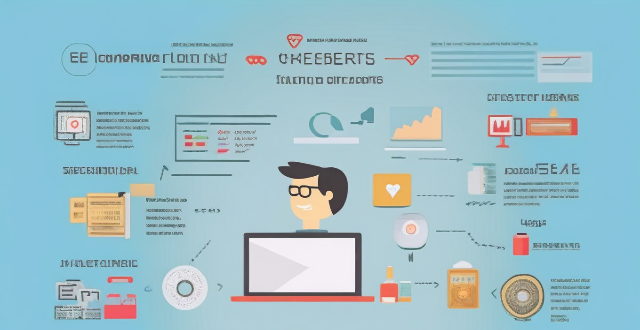
What is the Pomodoro Technique and does it really work for enhancing focus ?
The Pomodoro Technique is a time management method designed to improve focus and productivity. It involves working for 25 minutes followed by a short break, with longer breaks after every four Pomodoros. The technique aims to enhance concentration, manage time effectively, reduce procrastination, and boost overall productivity. However, its effectiveness can vary based on individual adaptability and workflow.